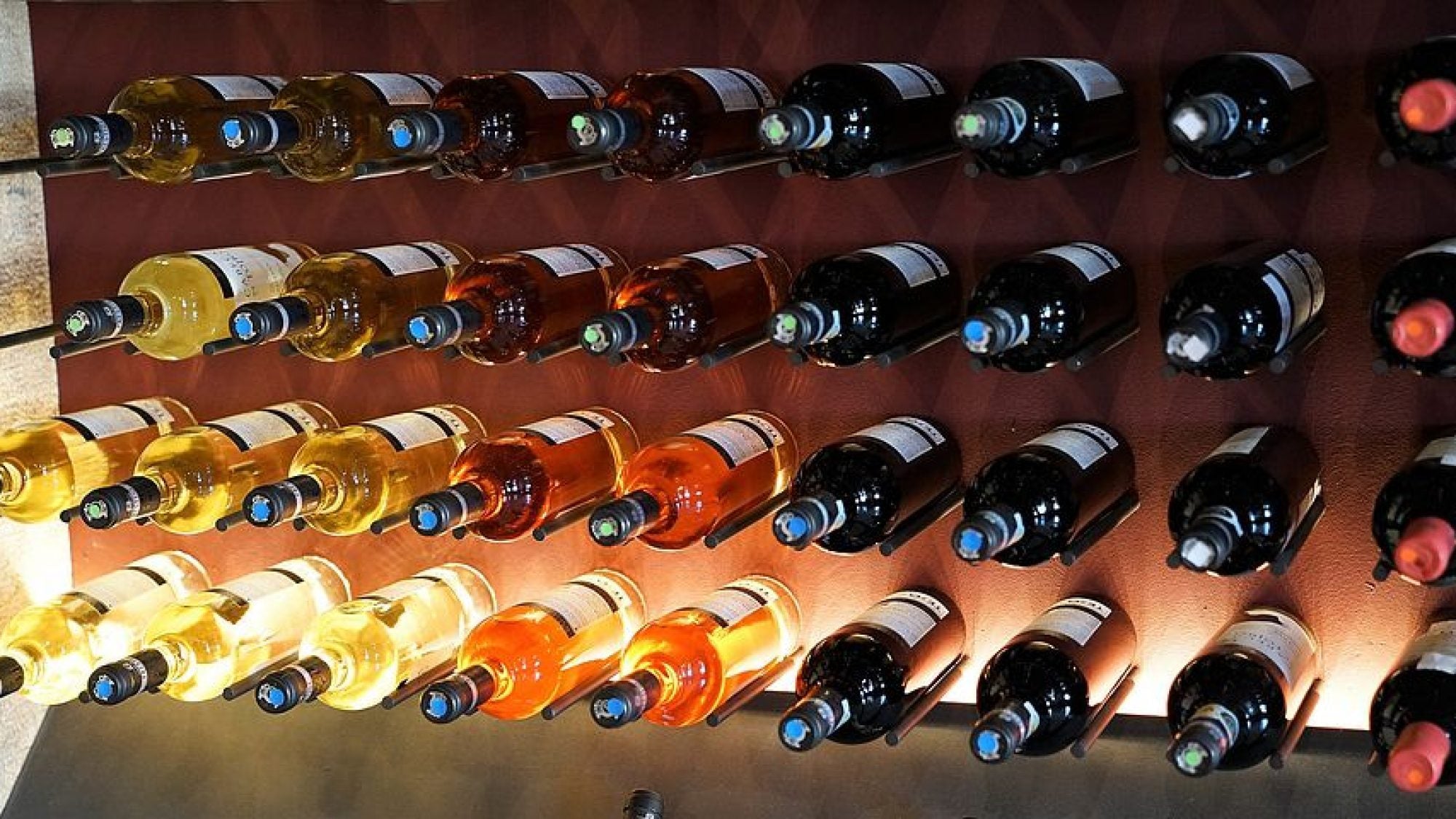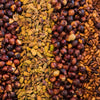Enjoy These Keto-Friendly and Tasty Low-Carb Wines

While we don’t advocate drinking alcohol on a ketogenic diet (in fact, we recommend you avoid alcohol during the KETO 30 Challenge program), if you're going to drink, you might as well be smart about it. Wine, specifically red wine, offers health benefits including improved blood pressure, antioxidants, and more. We recommend that you opt for a red wine, limiting yourself to a maximum of two glasses per day, but we’ve included a few white wines on this list as well.
Before we get into these, let’s turn our attention to the scientific side of the interactions between ketosis and wine. We asked Dr. Colin Champ to weigh in. He’s an oncologist, ketogenic diet researcher, wine lover, and blogger, so knows a thing or two about this topic.
As a southern Italian and lover of wine, let me be the first to tell you that when following a ketogenic diet, you can have your wine and drink it too. A couple tips can help ensure that you avoid being bumped out of ketosis from your nightly red. Sugar is generally considered enemy number one when it comes to wine and ketosis. During the fermentation process, yeast feasts on the sugar from the mashed-up grapes to produce alcohol, and eventually, a delicious wine. If the yeast does not finish its meal, some sugar will be left in the wine. This is what’s known as residual sugar. Some producers even add sugar which, of course, is frowned upon around here. While some nuances like acidity can alter the sweet taste of wine, generally speaking, the sweeter the wine, the more sugar it contains.
Yet, while numbers vary, dry red wines generally have less than 5 grams of sugar per glass, often closer to zero. But don’t let this fool you, as some of the less dry red wines still have under 5 grams of sugar per glass. While I would certainly stay away from any sweet or semisweet wines (regardless of whether you are on a ketogenic diet), the small difference in sugar between the dry and very dry red wines is unlikely to knock us out of ketosis when we are talking about a single glass. That being said, I would generally aim to avoid wines where sugar is added by the producer because they are lower quality and often worse for your health.
Where the problems arise is when we go from one glass to two, or even three. For many, this may begin to approach sugar levels that can kick us out of ketosis. Besides the sugar, there are two schools of thought on alcohol during a ketogenic diet: some believe it increases ketone production, while others think alcohol lowers it. Like most things, it depends on the person. The liver, our detoxification organ, makes ketones. When we drink alcohol, the liver must focus its efforts on clearing the toxin. This can overwhelm it, leading to fat gain. Some people feel as though this competition can decrease the number of ketones produced by the liver. While I do not know of any studies to support this -- for some reason, there doesn’t seem to be a lot of funding for research on wine drinking while in ketosis -- it seems to happen to me when I enjoy my nightly glass (or two) of red wine. Others feel that, in its purer forms, alcohol can affect liver metabolism leading to higher levels of ketones. While that may be the case, I will avoid a discussion on it since we are dealing with wine here.
At the end of the day, when there are inconsistencies among people, there is only one way to find out what works for you – measure it! When I performed some self-experimentation during a cycle of ketosis spanning several months, three glasses of wine consistently stalled my ketone production. While all my wines are dry to varying degrees, and the quality is generally good, it did not seem to matter what type I was drinking. During my self-experimentation, I pricked my finger multiple times throughout the day over several weeks to measure my ketones. The results were as follows:

After the start, my ketones were consistently above 1 mmol/L, except at a few timepoints where they fell to around 1 mmol/L. The most common cause of this decrease was when I found myself drinking more than two glasses of wine with dinner.
My final recommendations? -Drink dry to very dry red wines. -Consume two glasses of wine at the most. -Measure your levels before and after to know how your body responds.
As a final point, keep in mind that ketogenic diets can cause the loss of some minerals like potassium and magnesium, which can lead to dehydration. Alcohol can worsen water loss, so make sure to compensate with water and mineral-dense foods (view this guide for a more in-depth look at why dehydration occurs and what you can do to prevent it). Also, many people on ketogenic diets are cheap dates when it comes to the effects of alcohol because it lowers tolerance. Keep that in mind to ensure you make safe decisions.
Thanks, Colin! To read more of his blogs, head over to http://colinchamp.com/
Now, to our wine recommendations.
Red Wines

1. Cabernet Sauvignon
This French red wine is one of the most popular in the world, renowned for its bold flavor, high tannins, and oaky notes. Cabernet Sauvignon is fantastic by itself or paired with other bold foods like steak, peppercorns, or charred/grilled foods. Fats and creams neutralize the presence of tannins (that dry-mouth feeling after sipping wine), making this a perfect wine for keto meals.PAIR WITH: Marinated Hanger Steak
2. Pinot Noir
Also originating from France, Pinot Noir is another bold red wine similar to Cabernet Sauvignon, but slightly fruitier with softer tannins. The softer tannin presence allows for a slightly larger range of potential pairings, including salmon and grilled chicken.PAIR WITH: Pan-Seared Salmon with Lemon Dill Sauce
3. Merlot
Often considered an intro wine, Merlot has a mild tannin presence, fruity notes, and is usually a safe bet for anyone new to wine. Its slight fruitiness and mild tannin content opens up the door to pair this wine with cheese, chocolate, steak, salmon, chicken, and more!PAIR WITH: Chicken Parmesan
4. Sangiovese
If you feel like stepping out of your comfort zone with a less popular, but equally delicious red wine, then we recommend a Sangiovese. Originating from Italy, Sangiovese generally pairs well with Italian and Mediterranean meals and includes soft berry and plum notes.PAIR WITH: Pancetta and Goat Cheese Stuffed Flank Steak
White Wines

1. Sauvignon Blanc
Hailing from France, Sauvignon Blanc is a crisp, refreshing white wine with high acidity. Because of its herbal, earthy flavor, Sauvignon is best paired with meals that include bold greens.Try: Blueberry Acai Keto Wine Spritzer
PAIR WITH: Mahi Mahi with Beurre Blanc
2. Pinot Grigio
One of the most popular and refreshing white wines in the world, Pinot Grigio is crisp and has notes of citrus and green apple. This is a great starter wine for those just dipping their toe into the wonderful world of wine. Because of its light, delicate flavor, it complements other light meals that won't overpower it, like pasta dishes, white fish, and chicken.PAIR WITH: Parmesan-Encrusted Halibut
3. Chardonnay
The king of white wines, Chardonnay comes in varieties from buttery and smooth to strong and oaky. The food pairings range anywhere from soft cheese to meats with fragrant herbs, like thyme and rosemary.PAIR WITH: Chicken Piccata
4. Rosé
Even though Rosé is technically both a red and a white wine, its crisp, summer flavor earned it a spot on our white wine list. For that reason, we're also going to pair Rosé with light meals and summer flavors.PAIR WITH: Chicken and Grape Salad
Conclusion
So as you can see, there are many keto-friendly wine options that you can enjoy as long as you watch your overall carb intake. And if you find yourself knocked out of ketosis after enjoying some wine (the amount tolerated by each individual varies), you can help your body get back into ketosis with exogenous ketone supplements like KetoLogic BHB.Now swirl that glass, aerate your dry wine of choice, and enjoy your freedom to sip while going keto.
-
Posted in
Authority Article, Drinks, Nutrition, Nutrition Article





